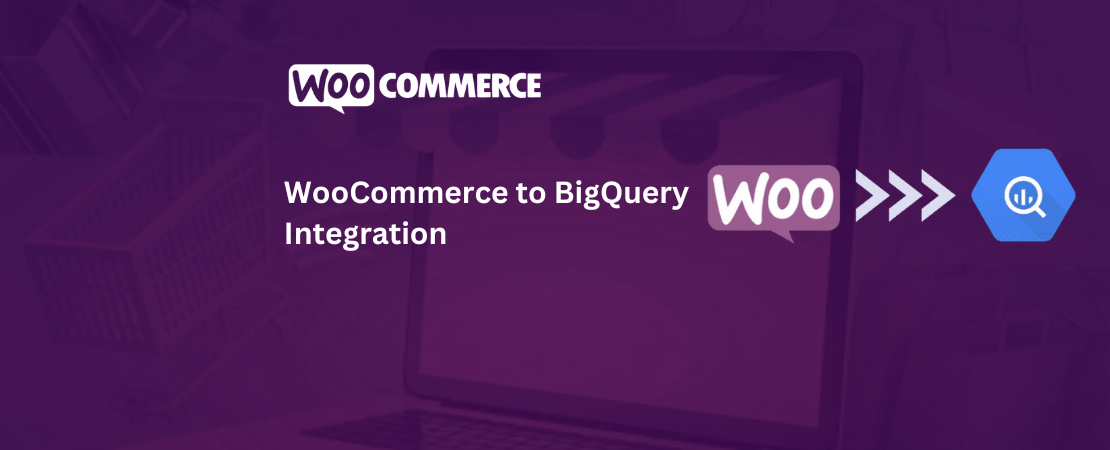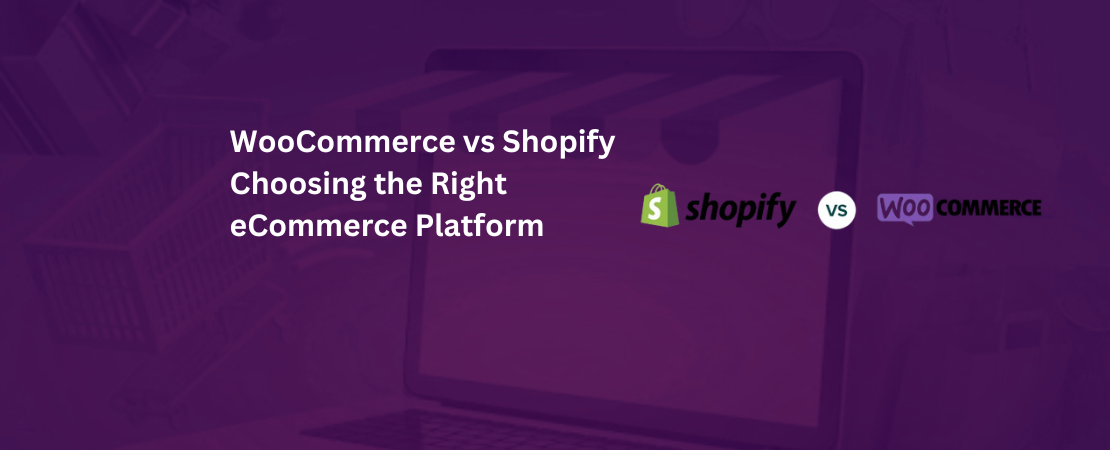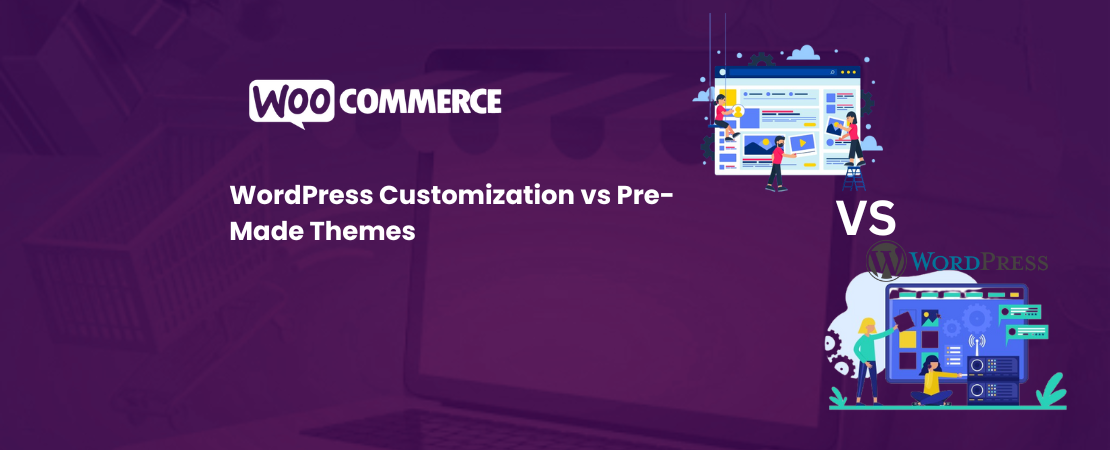Are you struggling to choose between WordPress and Joomla, as the right web development platform for your new website?
Honestly, you aren’t alone in this struggle as there are thousands of entrepreneurs looking to know more about different web development platforms like WordPress vs Wix Vs Joomla or WordPress Vs Squarespace vs Joomla, and much more.
Now, the catch in choosing the best web development platform lies in your understanding of your business needs. Each web development platform comes with its own unique features and functionalities that are ideal for some business models and not so great for the others. So, before you decide on which platform you should choose, make sure you understand your business need, as well as, have a complete understanding of the features and functionalities offered by these platforms.
Now, in this blog, we will be looking at two giant web development platforms Joomla vs WordPress, to see features, pricing, and functionalities offered by each of them. So, keep with us as we start our ultimate battle between Joomla Vs Woocommerce development platforms.
Why need to Compare WordPress vs Joomla?
Well, previously we have compared various platforms like WordPress Vs Squarespace or Drupal Vs Joomla, and others. Each of the comparisons is to give our readers a complete understanding of the functionalities and features offered by different platforms and make it easy for them to make the right choice.
Now, when it comes to WordPress vs Joomla, both of these are immensely popular and highly contested web development platform that brings in much similar features and functionalities to the table. To begin, both of these are open-source content management systems and have been around in the industry for over a decade; thus giving them the reliability and assurance for users.
WordPress was originally launched as a blogging platform back in 2003, however, the platform has quickly developed to become one of the most robust and multi-purpose content management systems. Today, WordPress hosts nearly 40% of all websites across the internet (not just blogs but all sorts of websites including ecommerce stores), making it the single most widely used web development platform in the market.
When it comes to Joomla, the platform was launched back in 2005. Joomla is also one of the largest content management system, powering over 3% of the World Wide Web on the internet, as well as, also claiming nearly 6% market for the content management system.
While Joomla has remained a powerhouse for the content management system, claiming the second spot just behind WordPress, the market for the platform is shrinking fast for the past many years.
The market trend for WordPress and Joomla can easily be tracked by comparing Joomla vs WordPress at “Google Trends”, which will give you an interactive report about how the two platforms have been performing over the years.
Nonetheless, what we can safely predict is that WordPress is certainly a leader as the web development platform and will keep dominating the market for many years to come. However, the same will be difficult to say for Joomla.
Read Also Shopify vs WordPress for eCommerce
Joomla Vs WordPress – Comparing the Two Web Development Platforms!
Ok, now that we are done with the basics of each platform and know their current market standing; let’s start our battle between WordPress and Joomla to see which platform is ideally suited for your new website.
-
Design and Functionality – Joomla vs WordPress
WordPress and Joomla both offer various themes that can be used to create aesthetically pleasing and functional web designs. However, the design templates are differently named for each of these Content Management Systems, even though they are meant for the same function and enable you to create a visually appealing design without any prior coding knowledge.
Talking about the functionality, WordPress offer website owners endless opportunities to keep on increasing the functionality of the website by adding plugins, whereas, the same can be achieved in Joomla by adding extensions. Again, plugins and extensions are essentially meant for the same purpose of increasing the functionality of the website, just different names for each platform.
Let’s just quickly see what’s the different plugins/extensions offered by each of these platforms.
- WordPress
WordPress is known for its robust and endless plugins that enable website owners to keep adding advanced functionalities to the website. Currently, there are over 50,000 WordPress plugins you can choose from the official plugin directory. So, essentially whatever the functionality you may want, there is a good chance that there will already be a plugin available for the same.
And even in case (very rare, though) you are unable to find the relevant plugin for the functionality you are looking for, you can always go with premium plugins, which are easily available on various websites.
Moving on to the themes, just like the plugins, there’s plenty of options to choose from. Presently, there are over 7,000 exquisitely Woocommerce design templates available for free in the WordPress official library. All of the free themes come with the option to customize; thereby enabling website designers to get a more personalized look from the theme. Again, if you aren’t satisfied with the thousands of freely available themes, you can always choose premium themes, which are available in hundreds of thousands of numbers at affordable rates.
Some of the more popular platform to choose premium WordPress themes includes;
- ThemeForest
- Themesnap
- Creative Market
- Mojo Themes
- Joomla
Now let’s see how Joomla compares with WordPress in terms of design and functionality. Honestly, the selection of extensions for functionalities isn’t anywhere near to that offered by WordPress. However, we do have to admit that Joomla brings in more out of the box functionalities, which means that you may not need many more extensions to add functionalities. Having said that, at present, there are around 8000+ Joomla extensions available with the platform’s official directory to choose from.
Moving on to the design element for Joomla, unfortunately, the platform severely lags behind WordPress in this aspect. To begin with, there are merely two official templates freely available. And if you don’t like one of them (which is the case for most business owners), you would have to go for premium design templates, available with different websites. This means that there are more chances of spending money for the web design on Joomla, as compared to WordPress.
On the positive side, Joomla does have some additional functionalities compared to WordPress, which makes the comparison even more interesting. For instance, Joomla does allow you to have a mixed design template, contrary to WordPress, where you are forced to choose one design theme at a time, or you would have to hire a professional website designer to merge the two themes and come up with a new one.
Who’s the winner?
Well, we believe WordPress does have a massive advantage over Joomla for both the number of free available themes, as well as, the endless options for plugins.
-
Themes – Joomla Vs WordPress
Any reputed web development platform does offer some professionally designed templates to enable users to get started early without much support from professional developers or designers. Let’s see what we have in the package for Joomla vs. WordPress in terms of theme availability.
- WordPress
As discussed earlier, WordPress is known for its massive database of free themes, which can easily be downloaded from the official library. All of the free theme templates also offer users a certain level of customization option, so as to personalize the theme as per their needs and requirements. The key purpose of these themes is to enable users to get started with their online stores or websites without having to pay for professional help; which may otherwise cost hundreds and thousands of dollars.
- Joomla
Joomla isn’t at the same level when it comes to free theme templates for the websites. The platform brings in few freely available themes to choose from, and if you feel not satisfied with them, you may have to spend some big money to get one designed for you professionally.
-
Development Time – Joomla Vs WordPress
Development time is an important aspect to consider for business owners looking to start a new website. The ease of development not only dictates the time required to get your website up and running, but it also contributes to the overall cost of the development. Luckily, WordPress and Joomla both come with a much easier user interface. So, let’s compare Joomla vs WordPress for the ease of development and time required to get things started.
- WordPress
WordPress is a synonym for an interactive and easy to use Content Management System that opens up a whole new world of opportunities for the beginners. From the installation process to the development procedures, you won’t need much time or technical knowledge to build a website using the platform. Once the platform is installed, you can easily create the account and start exploring the CMS instantly.
The entire Content Management System is designed keeping in mind the difficulties faced by the beginnings. The CMS comes with a highly intuitive and user-friendly interface made to take new users through the learning curve they need to explore all features and functionalities offered by the platform. Once you are familiar with the platform, you can instantly start designing the website, even without any prior development or designing knowledge. However, some professional help may enable you to understand the process even better.
When we talk about developing the Joomla and WordPress websites, you can hire Shopify web designers because they are experienced in designing websites that meet your business needs. To begin with, they can reduce the development time while enhancing the performance and website experience for the users. So, it’s a yes for hiring professional web designers.
- Joomla
Moving on to Joomla, the platform is also quite easy and understandable for beginners. Just like WordPress, the installation process of Joomla is quite easy; with many hosting service providers offering a one-click installation feature for Joomla. However, the similarities between the two ends here; because as we move on, Joomla becomes much complex to handle; especially for beginners.
The very dashboard (control panel) which is meant to give users the control of all the modules is not designed in a user-friendly manner; making it hard for beginners to explore and understand the system. You will either need some level of prior experience in web technology, a much higher amount of time to explore the platform yourself or hire a professional developer to get things done for you.
-
Pricing – Joomla vs WordPress
Ok, now that we are done with the basic technicalities of the two platforms, let’s not look at some of the other important aspects that may influence your choice of the platform.
Pricing is definitely one of the more important factors; especially for startups and small businesses. And when we compare WordPress vs Joomla vs Drupal, all of these are self-hosted and open source content management system, which significantly reduce the overall cost, as compared to some other platforms. However, there are many catches here as well. For instance, even though the platforms are free, you will have to buy a domain and hosting for that same. Also, you may need some professional help to design or develop websites (especially for Joomla).
So, while on the surface both of these are free platforms, you will eventually need to pay a price for a functional website.
- WordPress
In terms of pricing, WordPress does have some perks from the hosting companies, which means that you will get access to some privileged features and better ROI when you choose WordPress as your preferred CMS platform. Some of the common privileged features offered by hosting companies for WordPress includes;
- Easy single-click installation option
- Automatic updates
- Automatic backups
- Managed WordPress Hosting plan
These features are mainly offered because of the widespread use and market dominance of WordPress, which also means that it’s relatively easier to get affordable development services for the platform as well.
- Joomla
When it comes to pricing, Joomla does come with some cons.
To start with, you will find a limited number of hosting providers offering single-click installation for the platform. Also, little to no maintenance services will be provided by the hosting companies, which means you will have to pay out of your pocket to maintain the website (or do it yourself, if you can).
Not to forget, there are much lesser Joomla developers in the market, and when you find one it’s going to be much more expensive as compared to WordPress development. Thereby, when it comes to Joomla vs WordPress for pricing, WordPress is the clear winner by a large margin.
-
Payment Gateways and Fees
Next, other important aspects; especially for Joomla vs WordPress ecommerce websites is the payment gateway options and fees involved. To put it simply, the more payment gateway options you may put forth for the customers, the better your chances to make more sales.
So, let’s see how these two platforms compare to Payment gateways and fees.
- WordPress
When it comes to payment gateways for WordPress, WooCommerce is undoubtedly one of the best and most widely used Ecommerce payment gateway used in the WordPress websites. WooCommerce integration brings a whole set of features and functionalities to the website. However, WooCommerce isn’t the only payment gateway option for WordPress websites, and there are hundreds of other gateways including; PayPal, Stripe, Amazon Pay, and others that can be synced with the website for increased sales.
- Joomla
Joomla also brings in various payment gateway options for the websites, some of which are free while others are paid extensions. While, the total number of payment gateway options for the Joomla website may not be as much as WordPress, nonetheless, the options are large enough to enable stores to accept online transactions through various channels.
-
Help & Support – WordPress vs Joomla
Even with the best and most functional website, you need help and support in case you face downtime or any other problem. Thereby, let’s see how Joomla vs WordPress compares when it comes to the robustness of help and support offered by each platform;
- WordPress
WordPress being the ultimate market leader brings in the most strong and highly active help and support system, not just from the official customer service representatives; but also through user forums. There are a plethora of endless tutorials and guides easily available online to help you out with any and every issue that you may face during operations. Similarly, you can utilize the whole range of video manuals, tutorials, and text compiled by expert users to help you with the operations.
Apart from a strong user community, you can also choose professional WordPress experts to deal with any bug or issue not fixing around. The experts are widely available and often offer services at affordable rates.
- Joomla
Similar to WordPress, Joomla brings in a whole set of active user community forums which are great for beginners to find answers to their queries. Also, there are ample online resources in form of videos, guides, and tutorials that can help find the fix for your problem.
Lastly, you can also opt for official Joomla support services, which are offered in form of different support plans. Currently, Joomla offers 4 different support plans for its users starting from as low as $39 and going as much as $299 per month.
-
Search engine optimization (SEO) – WordPress vs Joomla
No comparison for the content management system can be completed without comparing the Search Engine Optimization (SEO) features of the individual platform. So, let’s see how Joomla vs WordPress SEO compares with each other;
- WordPress
When it comes to SEO features, WordPress brings in all the important tools and functionalities required to enable websites to get higher ranking on search engines. Some of the SEO features offered by WordPress for its design templates include;
- Schema markup
- Breadcrumb navigation
- Open graph data
- Metadata
- Meta title
- Meta description
- Blogging
- Much more
The platform also enables users to create SEO friendly tags for Posts, whereas, you would need an extension to do the same in Joomla. Similarly, WordPress enables users to optimize permalink structures, along with various other SEO features; making it the perfect choice for SEO purposes.
- Joomla
While Joomla also brings in various SEO features and functionalities, it needs professional considerations to get things done correctly. The platform enables the creation of SEO-friendly URLs, making it easier for search engine crawlers, as well as, humans to read and remember the website. Similarly, the platform also allows the addition of metadata and meta tags for the web pages.
The downside is the application of the on-site SEO, which may require professional services to get it done the right way.
-
Inventory Management – WordPress vs Joomla
Inventory management is an important consideration especially for ecommerce businesses that need to keep updated and real-time management for inventory to ensure smooth store operations. Fortunately, WordPress and Joomla both bring in various robust and functional extensions/plugins that can be integrated with the ecommerce store for easy and effective inventory management. Let’s compare the inventory management capabilities of each of these platforms.
- WordPress
Setting up an ecommerce store with WordPress is a much easier and efficient process. The platform brings a complete set of ecommerce plugins that can be easily integrated with the ecommerce store for effective management. WooCommerce is one of the most popular and widely used WordPress plugins for WordPress ecommerce stores and holds more than 25% of the entire ecommerce market. Various other helpful tools make inventory management much easier and efficient for WordPress ecommerce stores and Woocommerce Migration Services.
- Joomla
Joomla also brings in some high-utility extensions for easy inventory management. Some of the popular inventory management extensions to choose from includes;
- DigiCom
- VirtueMart
- HikaShop
- MiioShop
Out of the lot, VirtueMart is one of the leading Joomla extensions for ecommerce stores. The extension enables users to easily add, remove, or manage inventory with ease. Some of the features of VirtueMart includes:
- Manage an unlimited number of products
- Multiple checkout options
- Coupons and discount system
- Various SEO features
-
Mobile Responsiveness – WordPress Versus Joomla
Mobile responsiveness is another important consideration for all websites, including ecommerce stores. Since the majority of the online shoppers are performing mobile queries, unresponsive websites not only results in the loss of half of the customers, it also makes it difficult to rank higher for mobile search queries.
Here’s how the two platforms compare in terms of mobile responsiveness;
- WordPress
WordPress is an absolute leader when it comes to mobile responsive websites. All of the design templates offered by the platform are completely optimized for mobile devices, enabling developers to create aesthetically pleasing and completely functional mobile responsive websites.
- Joomla
Moving on to Joomla, the platform does enable developers to create mobile responsive websites, however, that’s not the default setting and one may need to integrate extensions for a better and more comprehensive mobile responsive web development experience.
- Application Integrations
When it comes to application integrations for Joomla vs WordPress, both of these platforms offer plenty of support for integrating various applications as add-ons to increase features and functionality of the website.
For WordPress, the application integrations are known as “Plugins”, whereas, for Joomla, these are known as “Extensions”.
- WordPress
WordPress comes with a massive library of plugins for websites. The estimated number of Plugins available with the official WordPress library may exceed 50,000, which basically means that you will rarely need to pay for any premium plugin for your website feature or functionality.
- Joomla
Joomla also comes with thousands of extensions, which can be accessed and synced easily through the official library. However, the numbers here are much lower as compared to WordPress, standing at just above 8000. Nonetheless, with the various built-in features, together with ~8000 extensions, chances are you won’t have to pay for premium extensions for any feature or functionality.
Final Thoughts
Well, there you have it, everything you want to know about Joomla vs WordPress! Just as our previous comparisons, this wasn’t much about dictating you any specific platform, rather help you understand features offered by each of these platforms, so you can make your own choice.
Before we sign-off, we would again remind you that no web development platform or content management system is perfect and each of them has their strengths and weaknesses. The ultimate choice of the platform would depend on your business needs and preferences. Thereby, review your business needs and then compare offerings by Joomla and WordPress to choose the most suited platform for your business.
Is Joomla free?
While Joomla is a self-hosted and open-source platform, which means it’s free to install, you will still have to pay for various purposes including domain, hosting, web design template (optional), and web development (optional).
Does Joomla work with WordPress?
Joomla and WordPress may be sued together as two individual Content Management System platforms, which is perhaps the only out-of-the-box solution to use two platforms together. However, technically they need to be managed separately unless there is a synchronization extension.
WooCommerce Mobile App cost Vs Shopify app development cost: How to choose the best solution?
The Shopify mobile app will cost you around $29 per month, whereas, the cost for Woocommerce mobile app is quote-based and will depend on your specific needs and requirements.
Hiring an expert Shopify in the USA vs. WooCommerce Expert: Which one is easy to hire?
Hiring the Shopify expert is easier because they are readily available. As one of the largest ecommerce development platforms, hundreds of thousands of companies in the USA are offering Shopify development services, which also means better service quality and competitive pricing. Contrarily, while there is no dearth of WooCommerce development agencies, comparatively, these are few and spread as compared to the number of agencies offering Shopify development services in the USA.



